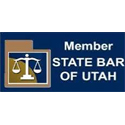 Understanding The Child Adoption Process In Salt Lake City, UT
Understanding The Child Adoption Process In Salt Lake City, UT
Adoption is a major life-changing event. When you adopt a child, you are assuming all the rights and responsibilities of parenthood. This is not something that can be done informally. Adoption in Utah requires a court order, not only to establish the adoptive parent’s new status but also to terminate any preexisting legal parent-child relationships.
CoilLaw is proud to offer adoption services to men and women in Salt Lake City. You are about to embark on a life-changing journey, and you deserve professional legal guidance along the way. Call our firm to speak with an experienced Salt Lake City adoption lawyer.
Do You Have to Be Married to Adopt a Child in Salt Lake City?
The Utah Adoption Act permits both married and single adults to adopt minor children under certain circumstances. In the case of a married couple, both spouses must consent to the adoption. If the prospective adoptive parent is single, he or she may not be “cohabiting in a relationship that is not a legally valid and binding marriage” under Utah law. In other words, a single person with a live-in boyfriend or girlfriend may not legally adopt a child.
Utah law further directs state agencies to prefer married couples when placing children for adoption. If there are “no qualified married couples” available, the state can still place the child with a relative, another person “who has already developed a substantial relationship with the child,” or an adult selected by the child’s parent or former parent.
Choosing the Right Adoption for You
Many of our clients are eager to adopt. However, prospective adoptive parents should give some thought as to what kind of adoption they want. There are various options:
- Open or closed adoptions. With an open adoption, the adoptive parents maintain some sort of relationship with the birth parents after the adoption, often only with the birth mother. This contact might include phone calls, birthday cards, or even visits between your child and birth parents. Closed adoptions are different. The birth parents have no contact once the adoption takes place. Closed adoption was once the norm in the United States, but open adoptions are increasingly popular with both birth mothers and adoptive parents.
- Agency versus independent adoptions. Agencies connect adoptive parents with pregnant women, but when you work with an agency, you must follow their rules. For example, some agencies might only offer open adoptions. An independent adoption involves finding a pregnant woman and getting her to agree to place a child with you. Some people prefer the comprehensive services agencies provide, including counseling. With an independent adoption, potential adoptive parents should feel comfortable talking with pregnant women and advertising their needs.
- Infant versus foster care adoptions. Many parents dream of bringing a small baby home with them to sleep every night in a crib. Others are open to adopting an older child. A foster care adoption is its process, and you should have a lawyer who understands the different steps.
- Utah or an interstate adoption. By looking outside Utah, you increase the chances of a match. However, adopting out-of-state comes with increased compliance issues.
Contact our firm to discuss your preferences. Many prospective adoptive parents enter the process with concrete ideas of what they want, only to change their minds after further reflection and consultation. We are happy to discuss any concerns or fears.
A Lawyer’s Role in Your Adoption Journey
Potential adoptive parents should consult CoilLaw to discuss their adoption goals. Having a lawyer throughout the process is a major help. Without one, you might have to rely solely on an adoption agency’s legal team, which puts the interests of the agency first. With your attorney, you can better understand the legal issues and their impact.
Our lawyer can help you:
- Think through adoption options, including open or independent adoptions.
- Discuss concerns and answer questions.
- Anticipate problems coming down the road, such as an unmarried father appearing on the scene.
- Research agencies or search for a pregnant woman for an independent adoption.
- Discuss legal issues around grandparent, stepparent, or other relative adoptions.
- Draft, revise, and review adoption agreements.
- Prepare for any home study or interview.
- Fulfill compliance obligations, such as when adopting an out-of-state child.
Adoption is exciting but stressful. Our goal as your attorney is to smooth the process out as much as possible. Surprises often pop up, but the right lawyer with adoption experience can respond in a way that keeps the adoption on track.
The Interstate Compact on the Placement of Children
Many prospective parents have better luck finding a child outside of Utah. However, the Interstate Compact on the Placement of Children (ICPC) comes into play when parents adopt across state lines. Every state is a member of the compact, so your lawyer should be familiar with its requirements.
The ICPC has certain goals. It ensures that children are moved legally from state to state and that parents gain access to information on the child’s health. The ICPC also ensures that adoptive parents have passed a home study and are in a safe place for a child.
There are special compliance issues that arise with interstate adoptions. You cannot take a child until you receive approval from the relevant ICPC administrators, which can take a few weeks. Call CoilLaw if you are interested in adopting a child from a different state. Our firm will ensure all forms are completed and processed so you can welcome a new child into your home as soon as possible.
 How Do You Begin the Adoption Process in Utah?
How Do You Begin the Adoption Process in Utah?
After you find a child to adopt, you can begin the legal process. In most cases, the adoption process begins with the adoptive parent filing a petition with a Utah district court. However, if the adoption also requires the termination of another person’s parental rights, the petition may have to be filed in a Utah juvenile court.
Who Must Consent to an Adoption?
Once an adoption petition is filed, several people must be notified of the proceedings. This includes:
- any parents listed on the child’s birth certificate
- anyone who has filed a paternity suit involving the child
- the child’s existing guardian or custodian
- the applicant’s spouse (if any)
- any other person who “lives with the child and acts like the child’s parent.”
 As a general rule, any person who receives notice must also give written consent to the adoption. In addition, the child must also give consent if he or she is more than 12 years old and mentally competent. All written consents must be given before a judge or an adoption agency, and once made, consent may not be revoked.
As a general rule, any person who receives notice must also give written consent to the adoption. In addition, the child must also give consent if he or she is more than 12 years old and mentally competent. All written consents must be given before a judge or an adoption agency, and once made, consent may not be revoked.
Consent is not necessary from any person whose parental rights have already been terminated by court order. Consent is also not required from an “unmarried father” who has not legally established paternity. If the child’s biological father is unknown or cannot be found to give his consent, the persons seeking to adopt must file a notice with the Utah Department of Health certifying they made a “diligent” effort to locate the father.
How Long Does an Adoption Take?
Any person required to give consent may contest the adoption in court. In all Utah adoption cases, the judge will hold a hearing where he may question the adoptive parents and any objectors. It should be noted that adoption is not an overnight process. Utah adoption law requires a child to live with an adoptive parent for at least six months (or one year in the case of a stepparent who wishes to adopt a spouse’s child).
Post-Placement Issues
Families that undertake an open adoption are agreeing to some degree of contact with the birth parents after the adoption goes through. Issues can sometimes arise with open adoptions, however, especially around boundaries. Some couples enter open adoption eagerly, only to discover that the birth mother is creating stress down the road.
Our law firm can help you understand what to expect with an open adoption and set boundaries. We might also draft a written agreement to be signed by you and the birth parents which can outline the degree of contact. This agreement clarifies for everyone each side’s expectations.
Open adoption is not for everyone. Honesty and communication are key to making it work. CoilLaw will protect your legal rights during and after adoption.
Why Should You Call CoilLaw?
Potential adoptive parents are full of enthusiasm but also naturally have questions about the process. Your choice of lawyer matters. The right Salt Lake City adoption lawyer can set you at ease and provide concrete, accurate information that empowers you to make sensible choices for your family.
Call CoilLaw today. The members of our legal team share:
- Passion for adoption and seeing children placed with loving parents.
- Knowledge of home study and how to prepare.
- Skill at identifying problems and legal knowledge of how to solve them.
- Compassion for adoptive parents who often encounter unexpected stress and need assurance.
Many of our clients are stepparents who have married a child’s mother or father after divorce. Others are relatives who have agreed to adopt when parental rights are terminated. And we can also help men and women seeking an agency or independent adoption, who are starting their journey at step one. Call our firm for more information.
Get Adoption Help in Salt Lake City by Contacting CoilLaw, LLC
Adoption is a complex legal matter, which means you should not attempt it without competent assistance. A Salt Lake City family law firm can advise you at all steps of the adoption law process. Contact Jill Coil and the attorneys at CoilLaw, LLC, today at (801) 884-3775 if you need to speak with someone about your adoption case today.




